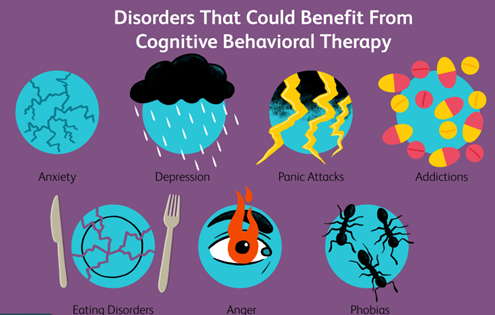A single parent is experiencing feelings of inadequacy related to work and family since one teenaged child ran away 2 weeks ago. The parent seeks the help of a therapist specializing in cognitive therapy. The psychotherapist who uses cognitive therapy will treat the client by:
Select one:
helping the patient how to identify and change faulty thinking
negatively reinforcing an undesirable behavior every day to avoid-it
focusing on conscious mental processes
always discussing Freud ego stages
The Correct Answer is A
Cognitive therapy is a type of psychotherapy that focuses on identifying and changing negative thought patterns and beliefs that contribute to psychological distress. In this case, the single parent is experiencing feelings of inadequacy related to work and family since one teenaged child ran away 2 weeks ago. The cognitive therapist would work with the client to identify any negative or distorted thoughts they may be having about themselves, their situation, and their ability to cope.
Through cognitive therapy, the therapist would help the client learn how to challenge and change their negative thoughts and beliefs, replacing them with more realistic and positive ones. The goal of cognitive therapy is to help the client develop new coping skills and ways of thinking that will enable them to better manage their emotions and improve their overall well-being.
Option b, negatively reinforcing an undesirable behavior every day to avoid it, is not a component of cognitive therapy. This approach is more aligned with behavioral therapy, which focuses on modifying behaviors through reinforcement and punishment.
Option c, focusing on conscious mental processes, is partially correct, as cognitive therapy does focus on conscious mental processes. However, this alone does not fully capture the essence of cognitive therapy.
Option d, always discussing Freud ego stages, is not relevant to cognitive therapy, as it is a psychoanalytic approach developed by Freud that focuses on the unconscious mind and early childhood experiences.

Nursing Test Bank
Naxlex Comprehensive Predictor Exams
Related Questions
Correct Answer is ["A","E"]
Explanation
a. “I can see that you feel sad about this situation”.
e. “The loss of your parent should be very painful for you.”
These responses by the nurse show empathy and validate the patient’s feelings. They also encourage the patient to continue expressing their emotions and facilitate communication.
Option b. “Don’t be sad, everyone has to pass for something like this in the life” is not a helpful response
because it minimizes the patient’s feelings and may make them feel like their emotions are not valid.
Option c. “I felt very sad when my mother died, it was horrible!” is not a helpful response because it shifts the focus of the conversation away from the patient and onto the nurse’s personal experience.
Option d. “Let’s talk about something else. this subject is upsetting you, don’t worry about this” is not a helpful response because it dismisses the patient’s emotions and may make them feel like they are not allowed to express their feelings.
Correct Answer is A
Explanation
This response is appropriate because it seeks clarification and more information to help the nurse better understand the patient's statement. By asking for an example, the nurse can gain a better understanding of the patient's experience and identify appropriate interventions to help the patient manage their anxiety.
Option b is not an appropriate response as it does not seek clarification and instead asks the patient to repeat themselves.
Option c is partially appropriate but could be improved by asking more specific questions to help the patient articulate their feelings and needs.
Option d is not an appropriate response as it dismisses the patient's feelings and may cause the patient to feel unsupported and isolated.
Whether you are a student looking to ace your exams or a practicing nurse seeking to enhance your expertise , our nursing education contents will empower you with the confidence and competence to make a difference in the lives of patients and become a respected leader in the healthcare field.
Visit Naxlex, invest in your future and unlock endless possibilities with our unparalleled nursing education contents today
Report Wrong Answer on the Current Question
Do you disagree with the answer? If yes, what is your expected answer? Explain.
Kindly be descriptive with the issue you are facing.
